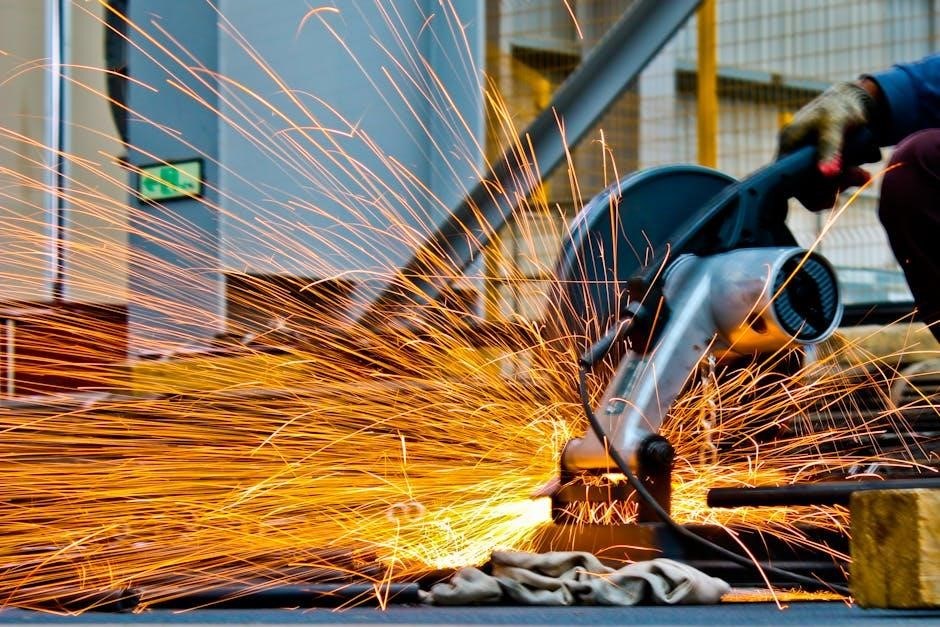Owning a home is a significant milestone, representing financial stability and personal achievement. It involves managing responsibilities like mortgage payments, maintenance, and insurance while enjoying benefits such as tax deductions and community engagement.
What It Means to Be a Homeowner
Being a homeowner means owning a residential property and taking on responsibilities like maintenance, insurance, and property taxes. It provides stability, equity, and pride, while also involving financial commitments. Homeowners enjoy tax benefits and the freedom to customize their living space. It’s a significant life milestone that requires careful planning and ongoing management to protect and enhance the value of the property over time.
Responsibilities and Benefits of Owning a Home
Owning a home comes with responsibilities such as mortgage payments, property taxes, and maintenance costs, ensuring the property remains safe and functional. However, it also offers numerous benefits, including tax deductions, equity building, and the freedom to customize the space. Homeownership provides a sense of stability and long-term financial investment, making it a rewarding experience despite the associated duties and financial commitments.
The Importance of Regular Home Maintenance
Regular home maintenance prevents costly repairs, ensures safety, and protects your investment. It helps maintain property value and creates a comfortable living environment for you and your family.
Why Regular Maintenance Is Crucial
Regular home maintenance is essential for preserving the integrity of your property. It prevents minor issues from escalating into costly repairs, such as mold growth or structural damage. By addressing problems early, you protect your investment and ensure the safety and functionality of your home. Regular upkeep also prevents unexpected hazards, like electrical faults or plumbing leaks, ensuring a secure living environment. Consistent care extends the lifespan of your home and maintains its value over time.
Creating a Maintenance Schedule
A well-structured maintenance schedule helps homeowners stay organized and ensures tasks are completed on time. Start by listing essential tasks, such as HVAC inspections, gutter cleaning, and roof checks. Assign each task to specific months or seasons. For example, schedule HVAC tune-ups in spring and fall, gutter cleaning in autumn and spring, and roof inspections after extreme weather. Incorporate daily and weekly chores, like checking for leaks or cleaning filters. A clear schedule prevents oversights and keeps your home in optimal condition year-round.

Homeowners Insurance: What You Need to Know
Homeowners insurance protects your home and belongings against damage or loss. It typically covers structural damage, personal belongings, and liability, ensuring financial security in unexpected events.
Types of Homeowners Insurance Coverage
Homeowners insurance offers various coverage types to suit different needs. The most common include HO-1 (basic), HO-2 (broad), and HO-3 (special), which provide protection for your home and belongings. HO-1 covers structural damage from specific perils like fire or hail, while HO-2 and HO-3 offer broader protection, including liability and additional living expenses. Each policy type provides varying levels of coverage, allowing homeowners to choose the protection that best fits their situation.
Factors That Affect Your Insurance Premiums
Insurance premiums are influenced by location, home value, age, and condition. Homes in high-risk areas, like flood zones or regions prone to natural disasters, typically have higher premiums. The value of your home and belongings also impacts costs, as does the age of the property. Additionally, security systems, building materials, and proximity to emergency services can lower premiums, while older homes or those in disrepair may face higher rates.

Financial Planning for Homeowners
Financial planning for homeowners involves budgeting for mortgages, property taxes, and maintenance. Prioritizing savings and managing debt helps ensure long-term financial stability and security.
How to Budget for Homeownership
Creating a budget for homeownership involves assessing your income, expenses, and savings. Start by prioritizing essential costs like mortgage payments, property taxes, and insurance. Allocate funds for maintenance and repairs, as these can be unpredictable. Consider setting aside 1% of your home’s value annually for upkeep. Additionally, budget for utilities, HOA fees, and emergency savings. Using the 50/30/20 rule can help balance needs, wants, and savings. Regularly review and adjust your budget to ensure financial stability and avoid debt.
Building an Emergency Fund
Establishing an emergency fund is crucial for homeowners to cover unexpected expenses like repairs or natural disasters. Aim to save 3-6 months’ worth of living expenses in an easily accessible savings account. Additionally, setting aside 1% of your home’s value annually for maintenance can prevent financial strain. Consider utilizing resources like the Homeowner Assistance Fund if you face financial hardship. Regularly review and replenish your fund to ensure long-term security.

Understanding Property Taxes and Assessments
Property taxes are annual levies based on a home’s assessed value, funding local services and infrastructure. Accurate assessments ensure fair tax distribution.
How Property Taxes Are Calculated
Property taxes are calculated by assessing the fair market value of a home, determined by local assessors using comparable sales, property size, and location. The tax rate varies by jurisdiction and is applied to this assessed value. Payments are typically made annually or in installments, funding local services and infrastructure.
Payment Options and Tax Benefits
Homeowners can pay property taxes annually or in installments, often through escrow accounts. Tax benefits include deductions on mortgage interest and property taxes, reducing taxable income. Additionally, credits may apply for energy-efficient home improvements. These benefits vary by location and should be reviewed with a tax professional to maximize savings and compliance.

Home Improvement and Renovation
Home improvement and renovation involve enhancing your property’s value and functionality. Projects range from bathroom renovations to kitchen upgrades, with trends like sustainability gaining popularity. Tariffs and industry dynamics can impact costs, but renovations often boost property value and homeowner satisfaction. Planning and budgeting are essential for successful projects.
Things to Consider Before Starting a Project
Before beginning a home improvement project, assess your budget, goals, and timeline. Research local regulations and permits required. Consider the impact on property value, energy efficiency, and resale potential. Evaluate the need for professional help and potential disruptions to daily life. Check for any neighborhood restrictions or HOA rules. Ensure you have a clear plan and contingency fund to handle unexpected costs or delays during the renovation.
How to Find Reliable Contractors
To find reliable contractors, start by asking for referrals from friends or family. Check online reviews and ratings on platforms like Angie’s List or Yelp. Verify licenses, certifications, and insurance coverage. Obtain multiple quotes and compare services. Ensure clear communication about timelines, budgets, and expectations. Avoid contractors demanding full payment upfront and always sign a detailed contract before work begins.

Legal Considerations for Homeowners
Homeownership involves understanding property rights, liability, and local regulations. It’s crucial to comply with laws, ensuring your home and actions align with legal requirements to avoid disputes.
Understanding Homeowners Associations (HOAs)
A Homeowners Association (HOA) is a private organization that governs residential communities, enforcing rules and regulations to maintain property values and shared spaces. HOAs collect fees from residents to fund community amenities and services. They often oversee architectural guidelines, landscaping, and noise restrictions. While HOAs can enhance community living, they may also impose strict rules that homeowners must adhere to, balancing property value protection with personal freedom.
Navigating Local Laws and Regulations
Homeowners must comply with local laws and regulations, which vary by jurisdiction and govern property use, renovations, and environmental standards. These rules ensure neighborhood consistency and safety, often requiring permits for modifications. Understanding zoning laws, building codes, and environmental regulations is crucial to avoid legal issues. Non-compliance can result in fines or project halts, while adherence protects property values and community aesthetics, fostering a harmonious living environment for all residents.

Preparing for Emergencies and Natural Disasters
Homeowners must safeguard their properties against natural disasters like earthquakes, floods, and hurricanes. Creating emergency plans and securing insurance helps protect families and assets during crises.
Creating an Emergency Plan
A well-prepared emergency plan ensures safety during crises. Identify escape routes, designate a meeting point, and list emergency contacts. Include a disaster supply kit with essentials like water, food, and first aid. Regular drills help familiarize all household members with the plan. Stay informed about local risks and update your strategy annually. Consider insurance coverage for natural disasters to protect your home and family effectively.
Protecting Your Home from Natural Disasters
Protecting your home from natural disasters requires proactive measures. Reinforce your home’s structure, install storm shutters, and ensure proper insulation. In high-risk areas like California and Florida, consider earthquake-resistant or flood-proof construction. Stay informed about local risks and invest in insurance coverage. Regular inspections and maintenance can help mitigate damage. Adopting home hardening techniques, like fire-resistant roofing, can safeguard against specific threats, ensuring your home remains secure and resilient in the face of natural disasters.

Energy Efficiency and Sustainability
Energy efficiency and sustainability are key to reducing your home’s environmental impact. Simple changes like LED lighting, smart thermostats, and renewable energy sources can lower energy consumption and costs.
Ways to Make Your Home More Energy-Efficient
Improving energy efficiency starts with simple upgrades. Replace traditional bulbs with LED lighting to reduce energy consumption. Install smart thermostats to regulate temperatures efficiently. Sealing air leaks and adding insulation can prevent heat loss. Upgrading to energy-efficient appliances and windows also significantly cuts energy use. Additionally, consider installing solar panels for renewable energy and utilizing power strips to eliminate standby power consumption.
Sustainable Practices for Homeowners
Adopting sustainable practices enhances your home’s environmental impact. Install rain barrels to harvest water and use low-flow fixtures to conserve resources. Implement recycling and composting programs to reduce waste. Choose eco-friendly materials like bamboo or reclaimed wood for renovations. Maintain a sustainable garden with native plants and minimize chemical use. Consider energy-efficient landscaping and support local, sustainable products to reduce your carbon footprint while creating a healthier living environment.
Homeownership is a rewarding journey, balancing challenges with long-term benefits like financial stability and personal growth, offering a sense of accomplishment and security for the future.
Final Thoughts on Successful Homeownership
Successful homeownership requires balance, responsibility, and proactive planning. It offers financial stability, a sense of community, and personal growth. Regular maintenance, proper insurance, and adherence to local regulations ensure long-term security. Staying informed about market trends and managing finances wisely helps navigate challenges. Homeownership is not just owning a property but building a legacy and creating lasting memories. Embrace the journey with dedication and pride for a fulfilling experience.
